We look at the research to determine if the keto diet can cure your digestion problems and IBD (inflammatory bowel disease).
It would probably be an understatement to suggest that there’s been a lot of buzz on the internet about the ketogenic diet. It seems to be a miracle diet that can cure almost any chronic disease.
Some claim that IBD (inflammatory bowel disease) can be managed or even put into remission on a ketogenic diet, a pretty strong claim to make. But is there really enough evidence to support this claim?
What’s the Keto Diet?
Before we get started, let’s define what exactly we are talking about. The ketogenic diet is an extremely low carbohydrate, high fat diet that consists of 80% fat, 10 to 15% protein and 5 to 10% carbs. It is also sometimes referred to as the specific carbohydrate diet.
Sounds appetizing, right?
The goal of the diet is to put your body into ketosis, which causes weight loss, among other side effects.
Our body’s preferred source of fuel is glucose (sugar) which is made from the carbs that we eat.
When we don’t eat enough carbs, our body goes into “starvation mode” and starts to make ketones from fat, which are used as a secondary energy source.
This process isn’t very efficient (at first, at least), which can leave keto dieters feeling tired and moody.
The ketogenic diet does have evidence for managing certain health conditions such as epilepsy has also been used with cancer patients, and is sometimes use under medical supervision for weight loss, but there little evidence for treating any other health condition. We’ve gone into extreme detail on the research here.
What is IBD?
IBD (Inflammatory bowel disease) is a general term for several autoimmune diseases (including Crohn’s and colitis) of the small and/or large intestine that is chronic and can go into periods of remission.
It is often flared up by stress and irritants in the diet such as alcohol, and symptoms include pain, bloating and chronic diarrhea, sometimes with blood and/or mucous. As a result, many people with IBD are underweight as they can’t absorb enough calories from their diet.
For those with IBD, their quality of life is greatly reduced; they often worry when they’re in public whether they will have access to a washroom and hope that they won’t have an accident.
On top of that, they are often tired, and feel generally unwell. The most common treatments, steroids and drugs that suppress the immune system, can have severe side effects.
So the news that diet can help is very promising for sufferers, but it’s important not to jump to conclusions without examining the science behind the claims.
Can the Keto Diet Cure Your Digestion Problems and IBD?
There is emerging evidence that the underlying cause of IBD is a bacterial imbalance in the gut. This is the reasoning behind the ketogenic diet being used to manage symptoms – gut bacteria love sugar and carbs, so by starving them, you can essentially restore balance to your gut bacteria which may reduce symptoms. This is the same argument made for the use of low carb diets for cancer patients.
The claims that a keto diet can cure your digestive problems and IBS are mostly based on one study from the Journal of Clinical Gastroenterology which showed that participants on the ketogenic diet for 12 weeks had remission from symptoms as well as changes in their gut bacteria.
The researchers noticed an effect of the ketogenic diet on IBD symptoms, but we have to be careful to jump to conclusions. Why?
1. There may be other explanations for the reduced symptoms.
The ketogenic diet is naturally low in FODMAPS (fermentable fibres in carbohydrates which can trigger gas, bloating in those with IBD and IBS). Thus, one of the reasons the ketogenic diet may reduce IBD symptoms is possibly due to the reduction of fermentable carbohydrate foods. Less fermentation means less gas and bloating. One study found that this diet also reduced inflammatory markers in the blood (suggesting reduced intestinal inflammation). The researchers claim that this reduction in inflammation could be due to changes in bacteria which could have resulted in reduced symptoms.
Over time, eating less carbohydrates, and more protein, vegetables and fats will naturally change the composition of your gut bacteria. So dieters may have fewer symptoms, but it will also reduce the diversity of bacterial species in their gut. It is generally understood among researchers in gut health that more variety of good bacteria in your gut means better intestinal health. Thus it is unknown what impact this reduction in diversity of bacterial species would have on long term health.
2. In scientific research, just because one study found an effect of their treatment doesn’t mean that is “scientifically proven”.
Yep. It takes many studies to come to the same conclusion in order to prove to health practitioners such as doctors and registered dietitians that the diet is a safe and effective treatment that they can use with patients.
Most importantly, as with any diet, the question you must ask yourself is, “is this diet sustainable for the long term? Can I see myself on this diet several years from now, and possibly for the rest of my life?”
For the vast majority of people, likely not.While the diet may have less side effects than medication, it is very difficult to adhere to long term.
Why?
Our bodies require carbohydrates for energy; when you eat very little carbs you will be tired and likely experience mood changes, at least in the beginning as your body gets used to running on ketones.
We are a carb based society, and most social events are based around food, so it can be very difficult for someone to resist the urge to eat carbohydrates.
The diet requires a ton of planning, food preparation and cooking so someone with a busy lifestyle would not be able to rely on convenience foods. Most people would have to completely change their lifestyle and start cooking everything from scratch. That’s not necessarily a bad thing, but may not be realistic for all.
It is not an enjoyable diet to a lot of people. Honestly, it’s hard to eat a diet of 80% fat; who wants to sit down to a meal of veggies and meat smothered in oil? Most people would have a hard time digesting this much fat, and may experience indigestion and nausea.
People with IBD already have a poor food intake due to symptoms, and may be underweight. Low carbohydrate diets often result in significant weight loss, so this would not be safe for someone with IBD.
So, what can we take from this? If you are suffering from IBD, IBS or digestive problems in general, and you are looking to reduce your symptoms with diet, you can try the following under the guidance of a registered dietitian:
- Reduce FODMAPS, then reintroduce them one at a time. You may be able to tolerate some FODMAPS in small portions.
- Instead of cutting out carbohydrates altogether, choose mostly whole grain carbs that are lower in FODMAPS such as quinoa, brown rice and sweet potato.
- Reduce or avoid refined sugars (sugary drinks and desserts) which feed bad bacteria and cause gas and bloating.
- Balance your gut bacteria with both diet (fermented foods) and probiotic supplements
- Try ginger or peppermint tea (or peppermint oil capsules) to reduce symptoms
- Manage stress: stress can flare up symptoms so manage your stress through exercise, chatting with a friend or loved one, and participating in hobbies and activities you find enjoyable
Bottom Line
It can be tempting to dive into a trendy diet that promises relief from the horrible IBD or IBS symptoms you experience, but the research is still fairly young. If you want to learn more about how to manage your IBD or IBS with diet, see a registered dietitian for information you can trust.
Contribution By: Holly Bradich
Updated on June 15th, 2020

Abbey Sharp is a Registered Dietitian (RD), regulated by the Ontario College of Dietitians. She is a mom, YouTuber, Blogger, award winning cookbook author, media coach specializing in food and nutrition influencers, and a frequent contributor to national publications like Healthline and on national broadcast TV shows.
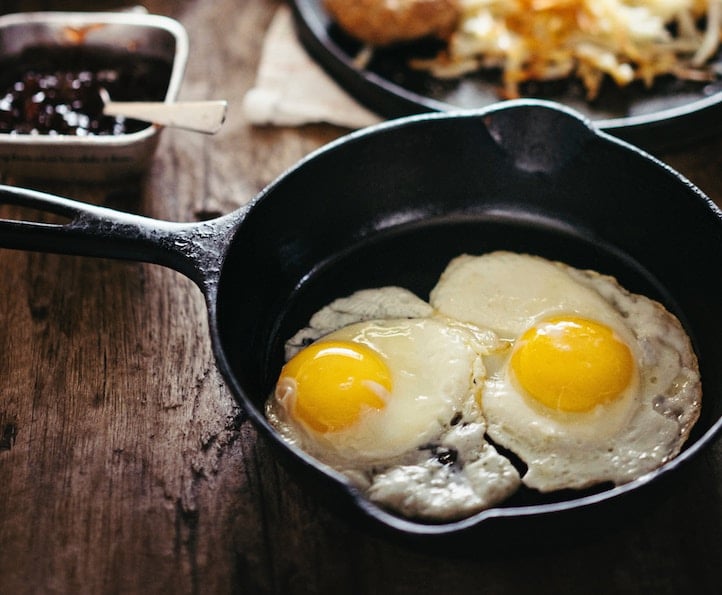
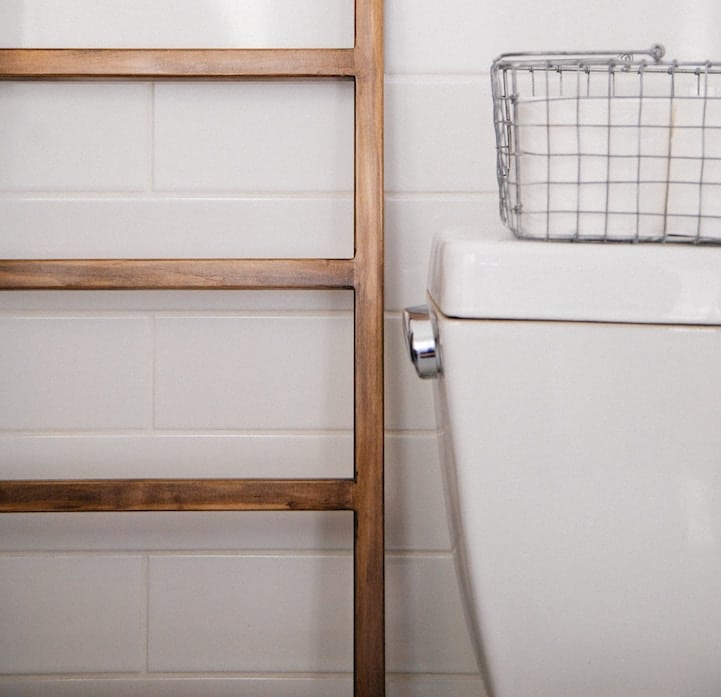
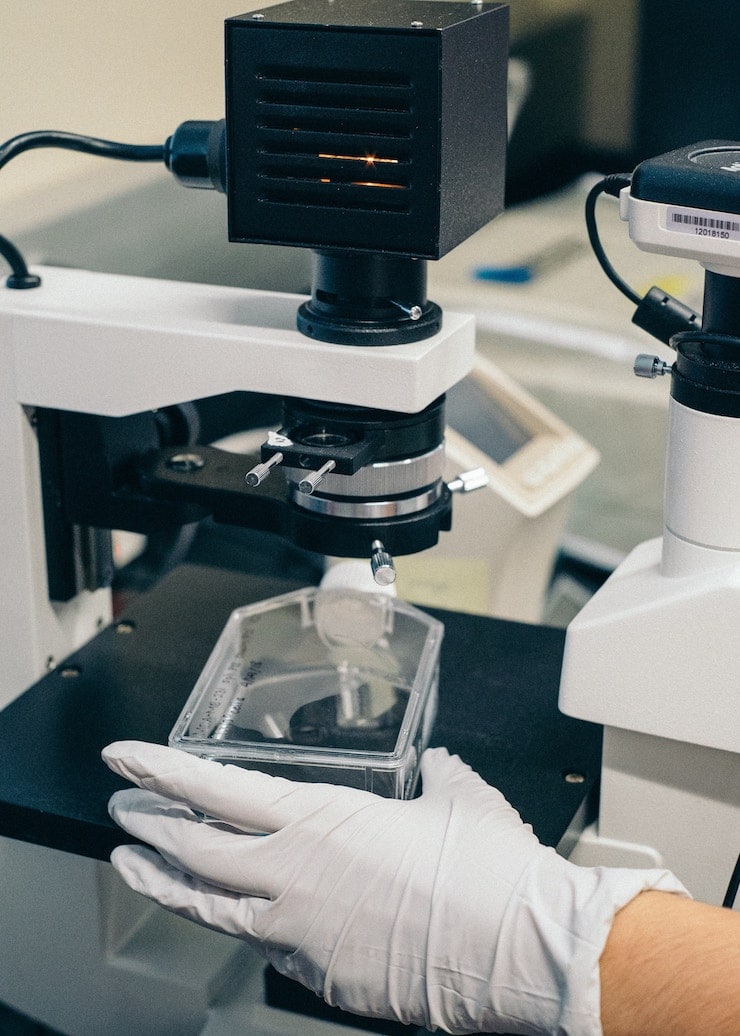
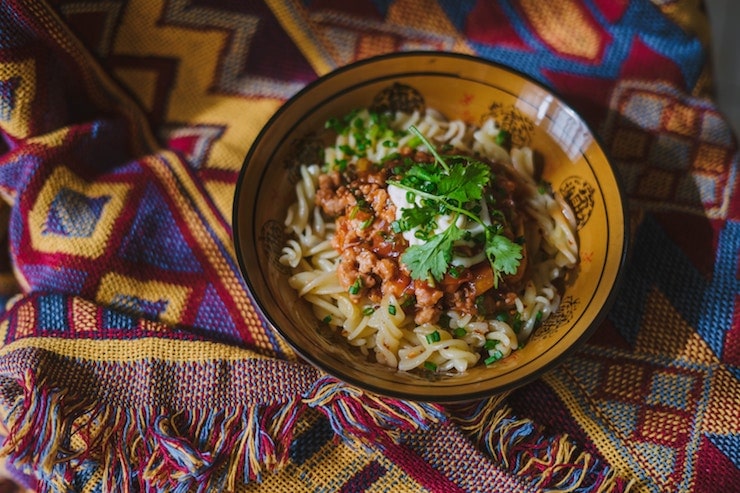
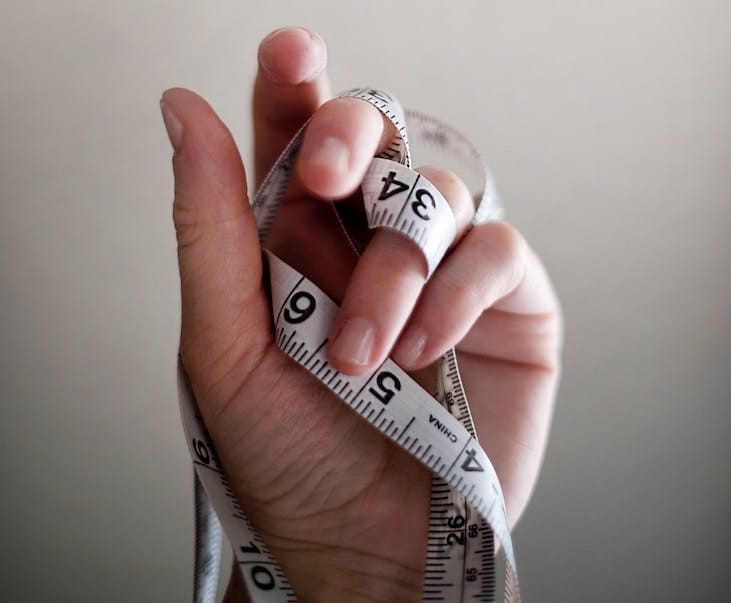
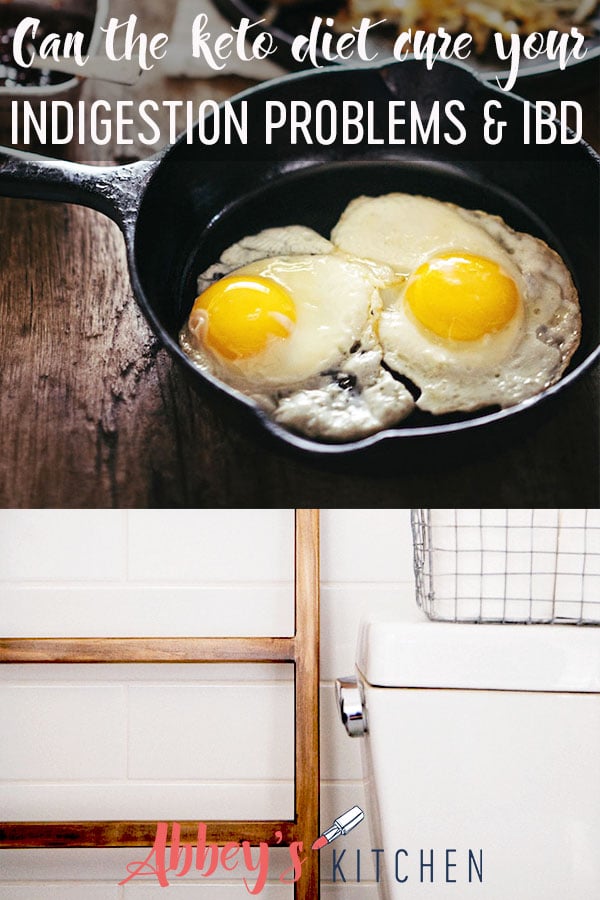

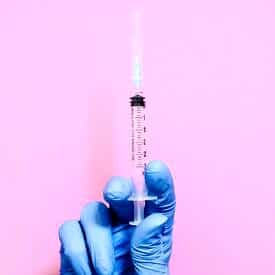
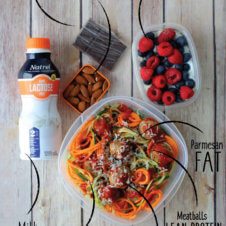

Dawn says
I can’t say I’m cured because it hasn’t been long enough but my colitis is definitely in remission and has been for months on end. I’m a traumatic brain injury survivor and I’m on a ketogenic diet for seizures and chronic head pain(which it totally works for that too!). It helping my colitis wasn’t the goal but was an amazing side effect. Keto definitely isn’t for everyone but it has totally transformed my way of life and quality of life. I now have the energy to play with my kids again and to delve into gardening. I grow a variety of lower carb vegetables and herbs and I make sure I get lots of healing goodness. I use to need a nap every single day and now I don’t! My moods/mental health has greatly improved as well. I wouldn’t be so fast to right it off. Even my doctors are amazed. I have my life back!
Abbey Sharp says
Thank you for sharing!
Josie says
I was on keto for 6 weeks and have UC. I was so sluggish before then I had great energy and felt good. I have been off keto for 2 weeks and I am feeling sluggish again and gassy. My stomach felt fine the whole 6 weeks.
Ruth Terry says
I have had colitis for more than 30 years. I have been in remission now for awhile. I take lots of meds one being a monthly injection. I always however am extremely bloated and have constipation or diarrhea. I’m doing this to see if it helps. I’m really skinny and when I do this I get too skinny! I did it once before and lost 11 pounds so quick was uncomfortable with the way I look and I did notice some relief and I wasn’t really good at re-introducing food so this time I’m going to try your comment helped so I hope it is right
Prophet says
Try the carnivore diet, it’s much more efficient and proven to be useful for handling inflammation than just keto. See the paper “Crohn’s disease successfully treated with the paleolithic ketogenic diet”.
Nate Bailey says
Hi Abby,
Nice read, having had Crohn’s for the past 24 years and actually on a similar diet mostly because I avoid bread and carbs anyways, I feel better now more than ever. It has been 9 months and my weight seems to not fluctuate as much and I have been able to ditch the Nexium as well. Anyhow, keep up the good work. Not sure why some are irritated at the title, doesn’t say anything about curing Crohn’s. Can’t win everyone 🙂
Regards,
Nate
Abbey Sharp says
Thanks for your comment
Km says
You should rethink the wording of this title; there is NO cure for crohn’s and colitis. I feel some poor unfortunate person that doesn’t know about their diagnoses will see this title and it’ll cause a lot more harm than good. For shame on you!
I have spoke to 2 of my specialists about fad diets such as these and both said that it isn’t good for a person with crohn’s, and that they can actually induce flare ups. Now a good change in diet CAN help Crohn’s and colitis, but not cure it. Not to mention it’s suggested that people with crohn’s should not eat seeds or nuts or the like anyway…
Abbey Sharp says
this is what ppl search so this is how people can find the correct info
Karen Hovorka says
How sad. You rely on two specialists to form your opinion. The women that wrote this article is bang on and if you read closely you will see that she is not claiming it a cure. SCIENCE backs what she is saying. I have experienced the many awesome effects of this type of eating and it HAS cured my IB issues and skin issues completely. I have also used this diet with many patients and with fantastic success with healing gut issues.
I believe your negativity comes from the fear of working hard to make yourself better. Unfortunately society looks for the easy answer. Roll up your sleeves a little elbow grease can go a long way. Try it. You will be surprised.
Karen says
There’s apparently no cure for psoriasis either, but I have been clear of that for six years since changing my eating the ketogenic diet. Go figure.
Christy Johnson says
Hi there, I loved your article. I have ulcerative colitis and started using the FODMAP app to start improving my symptoms (explosive diarrhea, abdominal pain, bleeding, etc.) It really helped me greatly! I had no idea how much my food choices were tearing me apart. Then I decided after much research ( I am a nurse) start on the Keto Diet about 4 weeks ago. You are right, it is tough with lots of prep (to keep me from getting bored)! But it has made me feel better! I have decreased symptoms and have not had a flare up as of yet. I follow the FODMAP app and stay clear of high fiber veggies and fruits/nuts. Although I am not strictly at 20 net carbs more like 30, I have improved health. My energy level has greatly improved, no more explosive diarrhea, bleeding, etc. My pain level has greatly improved although I still have pain. I believe along with my medication, and the change in my diet has improved my quality of life. The FODMAP app is actually right in line with Keto just a few differences. I have cheated and paid the price in more pain so I am pretty convicted to stay on it for a lifetime. Honestly, I think people with gut disease have to make balanced choices, not a one size fits all kinda lifestyle. I’m not on a perfect Keto food plan and not on a perfect FODMAP plan but it’s working for me! I loved your article!
Abbey Sharp says
Hey Christy, thanks so much for sharing your journey with us.
Marc says
This may be one of the most biased, lazy, uninformed and ignorant articles I’ve ever come across. There are so many statements that are flat out lies with no evidence whatsoever to back them up.
I haven’t done or tried the Keto diet yet, but I want to. Therefore, for the last 3 months I’ve been doing my research, vigorously. This article has me literally chuckling as I was reading it. If you’re not going to do the work yourself, at least watch the documentary the Magic Pill. Maybe that will open your mind…just a tad.
Sierra Townsend says
I wish that people were more open minded about the keto diet. No our bodies do not require carbs. Period. Its false. The keto diet has helped soooo many people with different ailments get relief and take control back of their lives. Please be open minded and do more research.
Abbey Sharp says
Hey Sierra, this post is based on the most current research. Thanks for your comment
SBU says
It’s actually incorrect
Julie says
I feel like your article might be really helpful, except I can’t read it. Your shareable links on the sidebar completely covers the left side of your post. 🙁 Almost impossible, and certainly irritating (at the least) to attempt reading…..which makes me sad. I was really looking forward to the insight you had on using the Keto lifestyle to help control my IBD and UC. I understand your blog is probably an income avenue, and while the links are necessary, the placement is less than ideal. In hopes this can be changed…..I’ll be checking back at some point later to see if I can read this article. Thanks much!
Abbey Sharp says
Sorry to hear this. Thank you for the feedback. I am going to review this
Diane says
Your summary about the ease and palatability of the Keto lifestyle is skewed. It is not a lot of fat poured over veggies and meat. It’s the easiest lifestyle change we have ever made. Convenience foods contributes to chronic inflammatory conditions so it doesn’t seem to make sense that would be an argument against using a Keto diet to balance and heal intestinal inflammation.
Kay says
I totally agree with Diane about the Keto diet. It is not a hard diet to follow. You will have to make more meals at home, but once you make the commitment, it’s not really hard. The high fat makes it easier because that includes things like cheese and cream cheese (cheesecake, dips,). Also, one can use natural sweeteners to make desserts that do not impact blood sugar. There are many types of natural sweeteners on the market today (see Amazon). Another important thing is to have plenty of probiotics and probiotics. This can help any kind of gut issue.
Dawn says
I wouldn’t recommend the dirtier side of keto for someone with gut issues. I have colitis and a clean ketogenic diet has transformed my life for the better. No dairy, no nuts, no sweeteners… Just whole natural organic vegetables/herbs and grass fed/wild caught fatty meats and organs with plenty of homemade broth. I also consume organic pasture raised duck eggs(I have a sensitivity to chicken eggs) cooked in coconut oil and ghee. I’d recommend getting an allergy test to anyone wishing to heal from within.
Deborah Brooks says
Being a vegetarian and a runner, it’s not something that would fit w my nutritional needs but I can see how some people would benefit. Thanks for providing some great facts
Abbey Sharp says
Thanks love!